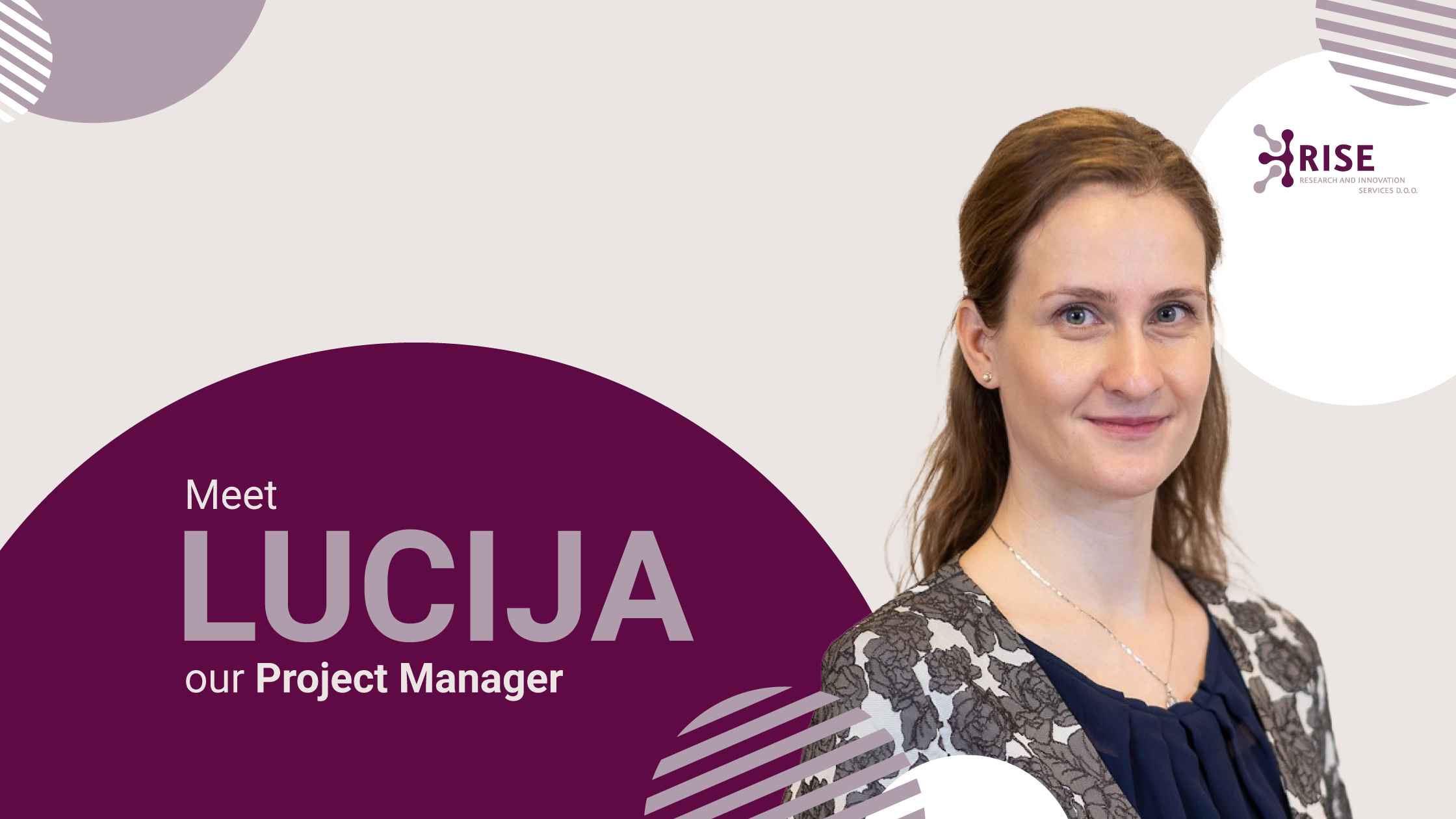Meet Lucija, our Project Manager

Meet Lucija Rogina, our experienced project manager with a background in project proposals, project coordination, and scientific studies. With an impressive portfolio that includes contributions to national and international projects like OSTEOGROW and OSTEOproSPINE, extending across the field of translational science and drug development. In 2022, she was distinguished with the esteemed LifeArc-AUTM technology transfer fellowship, underscoring her commitment to the intersection of intellectual property rights and technology transfer. This interview reveals more about Lucija’s expertise and day-to-day responsibilities.
What are the three skills every project manager should have?
On the first place I would put the communication skills. It is crucial that everyone understands their roles and responsibilities and this must be communicated clearly among partners. Following that, I emphasize time management to ensure timely completion of tasks and projects. Last but not least, are problem-solving skills. When challenges or issues arise, it is essential to find solutions. That usually require critical thinking, creativity, and the ability to assess situations from different perspectives.
What are your favourite parts of the project lifecycle, what are your favourite tasks?
Each part has its own set of pros and cons, alongside the significance it holds. Therefore, it’s difficult for me to single out a specific aspect. However, I take pleasure in both observing and actively engaging in the entire process, from the initial ideas and proposals writing, and continuing through to the project end. Witnessing accomplishments and success following years of implementation and hard work, especially for the projects that have a great impact on society makes me a particularly fulfilled in my job.
Can you share some challenges that occurred in projects you were managing?
The last few years have been quite challenging in project management, like in all other fields due to the unexpected emergence of the COVID-19 pandemic. During that period, I was involved in a new drug development project, OSTEOproSPINE, in which main activity was conducting the clinical trial. In a situation where hospitals were facing restrictions, the project implementation appeared highly uncertain, if not entirely impossible. What I learned during that time is that with the dedication of all partners, it is possible to overcome such unforeseen challenges. The importance of teamwork became evident. Everyone’s readiness to make significant adaptations and moving forward with gradual, consistent steps led us to the achievement of all goals and successful completion of the clinical study. Being involved in such a great project during challenging and uncertain times was truly an honour.
What is the hardest part of your job?
Communication with people is the most significant challenge. In my job, I regularly interact with diverse individuals, each bringing their unique perspectives and expertise to the table. Coordinating tasks and ensuring the smooth project work flow within large groups can be quite challenging. Communication needs to be clear and concise. It involves not only articulating ideas and plans effectively but also actively listening to others' viewpoints. That's why effective communication stands out as a crucial requirement for successful project implementation.
How big of a role does team work have for you in your day to day responsibilities as a project manager?
On a day-to-day basis I’m working closely with teams. In fact, teamwork is the foundation upon which successful projects are built. We need to cooperate and communicate well together and that’s one of my responsibilities– to cultivate the supportive team environment. With that we can more easily identify any potential issues. Our regular communication ensures that everyone is aligned and together we are driving the project forward. Teamwork also brings several positive consequences such as encouraging creativity. Team members usually support and motivate each other leading to the increased job satisfaction. Moreover, collaboration often results in more efficient problem-solving, as different team members contribute their unique expertise and skills. Finally, one of the most beautiful things for me about the teamwork is that after hard work we can celebrate achievements together. This also motivates us to keep working together and foster a positive and supportive team spirit.
Can you share with us how being a project manager helps you in your private life? Are there any principles that you use in both professional and private life?
As a wife and mother, I’m kind of a manager in my family, in my little team. Despite unique challenges I’m using the same skills, slightly adjusted to overcome them. For instance, problem-solving skills I mentioned earlier, are quite useful, whether addressing relationships, finances, or any other life aspect. The principle is still the same: identify the problem, analyse the situation, and find a solution. Many other management concepts can be adapted to the personal life. Establishing clear structures and distributing responsibilities among family members are similar to setting project goals, ensuring everyone's needs are met. Drawing on my professional experience, particularly my expertise in time management, I’m balancing among family needs, friends, house work, and personal desires. However, I would say that managing personal life is much more complex due to the nature of relationships, emotions and of course value it has. There is also a lot that can be learned and transferred to the work environment. So, yes, being a project manager helps me in my private life but very often it is vice versa.